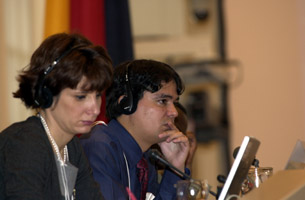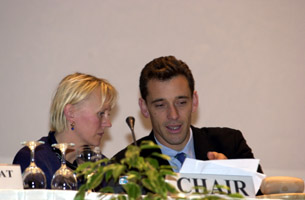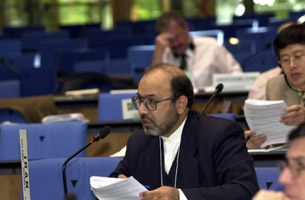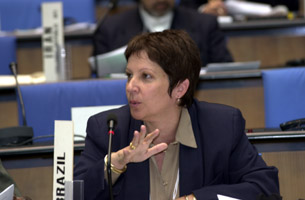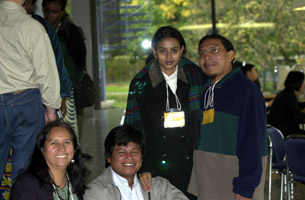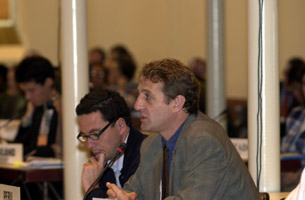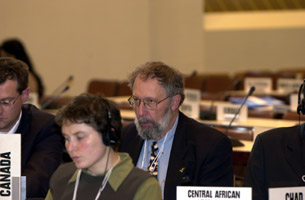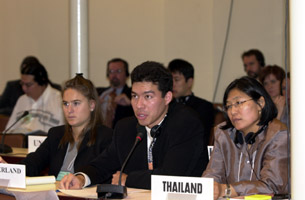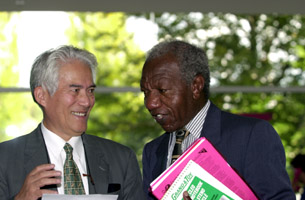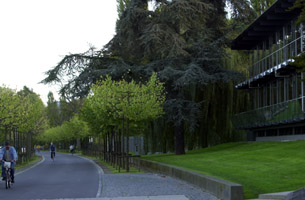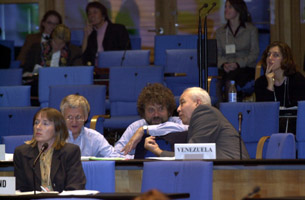|
FIRST
AD HOC OPEN-ENDED WORKING GROUP ON ACCESS AND BENEFIT-SHARING 22-26 October 2001 Bonn, Germany |
|||
|
||||
|
|
||||
|
|
||
| SUB-WORKING GROUP I: | ||
|
|
||
| GENERAL PROVISIONS: | ||
|
|
||
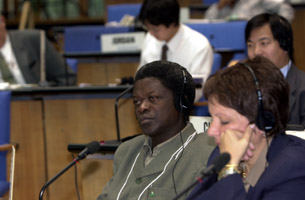 On key features, Soumayila Bance (BURKINA FASO) (far left) requested definition of "voluntary nature" under use of terms. |
||
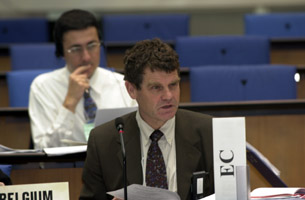 On scope, regarding exclusion of plant genetic resources covered by the International Undertaking (IU), the EC (left) suggested language stating that the guidelines should be without prejudice to relevant legally binding international agreements, including the IU's ABS provisions, and preferred to address the issue under the relationship with international legal regimes. Left photo: EC's Christoph Bail making an intervention during a session of WG-I. |
||
| ROLES AND RESPONSIBILITES OF USERS AND PROVIDERS: | ||
|
|
||
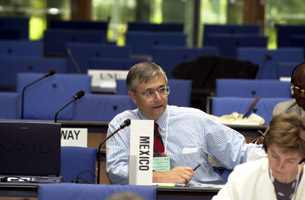 MEXICO (left) stated that the guidelines should apply to the whole range of users and providers, not just Parties. |
||
| PARTICIPATION OF STAKEHOLDERS: | ||
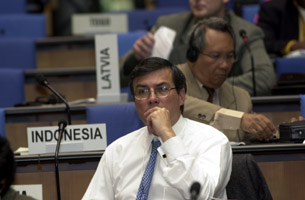 COLOMBIA (left) recalled WG-I's mandate to provide input to COP-6 informing on mutually acceptable ABS terms. |
||
|
|
||
| STEPS IN THE ABS PROCESS: | ||
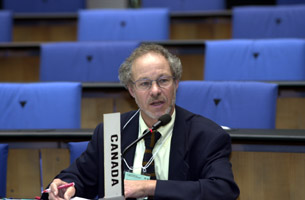 On PIC, CANADA (left) suggested alternative text on obtaining PIC and approval of indigenous and local communities, respecting their legal rights on genetic resources and associated traditional knowledge. |
||
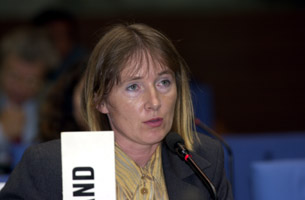 Bozena Haczek (POLAND) (left) suggested exclusion of taxonomic and systematic research not related to commercialization. |
||
| OTHER PROVISIONS: | ||
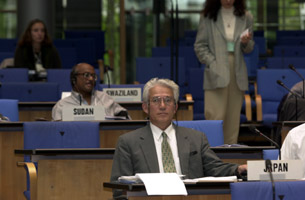 In the afternoon, delegates responded to a revised CRP.1. JAPAN (left), with THAILAND and the US, proposed deleting suggested paragraphs on: voluntary means for verification; institutional guarantees for compliance; market-based approaches; sanctions; and remedies for breach of terms. |
||
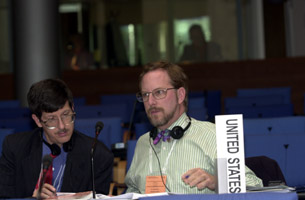 On dispute resolution, IRAN and the US (right) preferred the option specifying resolution according to national or international law, while CANADA, the EC and THAILAND preferred specifying relevant contractual arrangements. |
||
| SUB-WORKING GROUP II: | ||
| THE ROLE OF IPR IN ABS ARRANGEMENTS: | ||
|
|
||
|
|
||
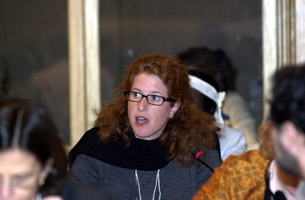 The US (left) said since only a small percentage of patents are commercialized, it would be a burden on patent examiners to review every patent application for compliance. |
||
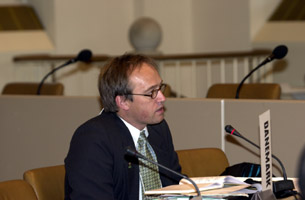 Christian Prip (DENMARK) (left) noted that its national IPR system contains an obligation on disclosure. |
||
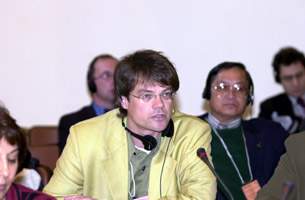 Hartmut Meyer of the GERMAN NGO FORUM ON ENVIRONMENT AND DEVELOPMENT (left) said that disclosure of geographic origin and PIC are important in preventing biopiracy and called for consistency of national IPR laws with the CBD. |
||
| CAPACITY BUILDING: | ||
|
|
||
| ENB ABS-WG1 SNAPSHOTS: | ||
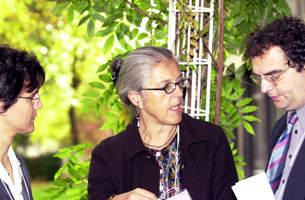
|
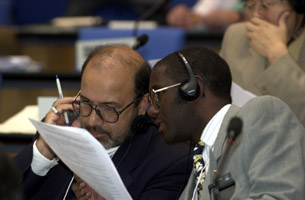
|
|
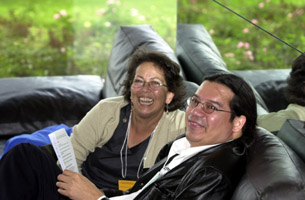
|
||

|
||
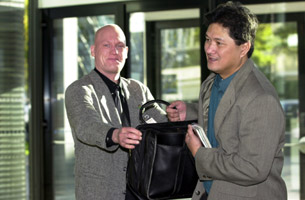
|
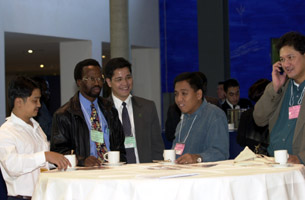
|
|
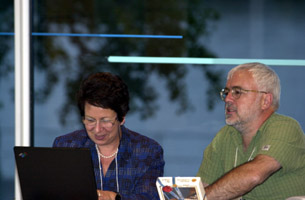
|
||

|
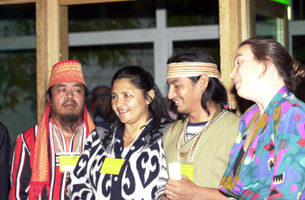
|
|
|
|
||
| © 2001, IISD. All rights reserved. |
|
|


